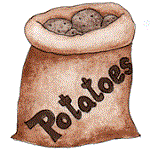 Fiscal policy, as opposed to monetary policy, is more readily understood by the general populace. Income taxes, budget deficits, the national debt. These are all tangible things the average working stiff can grasp a hold of, if they care to.
Fiscal policy, as opposed to monetary policy, is more readily understood by the general populace. Income taxes, budget deficits, the national debt. These are all tangible things the average working stiff can grasp a hold of, if they care to.
The consequences of ZIRP or QE, however, are less obvious to the casual observer. They experience the wild booms and busts of central bank caused price distortions yet never connect the dots back to the Fed. They may falsely condemn capitalism, and never scratch below the surface where the Fed’s money and credit games are lurking.
The industrious wage earner may also find that, despite working harder and harder, their lot in life never improves. In fact, it may even regress. Still, many won’t recognize heavy handed monetary policy as factors for their disappointment.
The recent college graduate, making a subsistence wage at a franchise coffee shop, buried under $50,000 in student loan debt, may be keenly aware that something is radically wrong. How come the cost of school is at such disparity with the value it provides, they may ask?
Nonetheless, many won’t correlate the bubble in student loan debt, or the massive building boom on college campuses, to the Fed’s mass credit creation machine. Nor will they contemplate the broken promises that led them down such a futile path. The simple fact is when something doesn’t seem right…it’s most likely a sham.
Magnifying the Business Cycle
Obviously, one can’t assign all liability for the broad population’s financial stagnation to the Fed. Lethargy and sloth are the primary culprits for many folks’ immobility. Globalization would have also happened independent of the Fed…though the Fed did grievously distort the progression.
On the other hand, industriousness and ingenuity will still overcome ZIRP. There are many examples of smart and ambitious fellows who’ve succeeded in the face of the obstacles coming out of Washington. Swimming upstream hasn’t bothered them a bit.
The point is there’s an abundance of misguided mischief executed by the Fed these days. Their attempts to smooth out the peaks and valleys of the business cycle have had the ill effect of magnifying them. The consequences to workers, savers, and retirees alike are remarkably harmful.
Moreover, as the current financial order strains to preserve the status quo this mischief will multiply like fungal spores. Radical policies will be hatched to cover the shortcomings of prior blunders. Negative interest rates and the dissolution of cash could be ushered to prominence during the next crisis moment.
Unfortunately, this sort of ingenuity destroys capital and degrades freedom. It fiddle faddles hard work. So, too, it rewards borrowing large gobs of money and betting it on high risk junk.
Potato Sack Economics
At precisely this moment the Fed is discovering just how off kilter they’ve pushed things. Global markets and world economies are failing to cooperate with their grand plans. Normalizing monetary policy may never happen.
For when the ZIRP genie is let out of the bottle, it’s remarkably difficult to contain it again. The economy and the financial system have adjusted to the abundance of cheap credit. Everything and everyone is dependent upon it.
More and more digital monetary credits are thus needed each month just to stand still. Take away the cheap credit for just a moment and everything slumps over like a sack of potatoes. Seven years of ZIRP have distorted financial markets to the point where a zero bound federal funds rate has become restrictive. The dollar keeps going up relative to other currencies.
The experience of the Fed is that it’s much easier to start ZIRP than it is to end it. As the next recession approaches the ensuing Fed response will have to be more and more unfounded. Who knows what they’ll try?
Perhaps they’ll monetize debt. Debase the currency. Then cancel it out. No doubt, some economist on the Fed’s payroll is drafting the academic underpinning, including a line graph, for the next great monetary experiment.
Rich chaos and disorder will follow.
Sincerely,
MN Gordon
for Economic Prism
Return from Potato Sack Economics to Economic Prism


